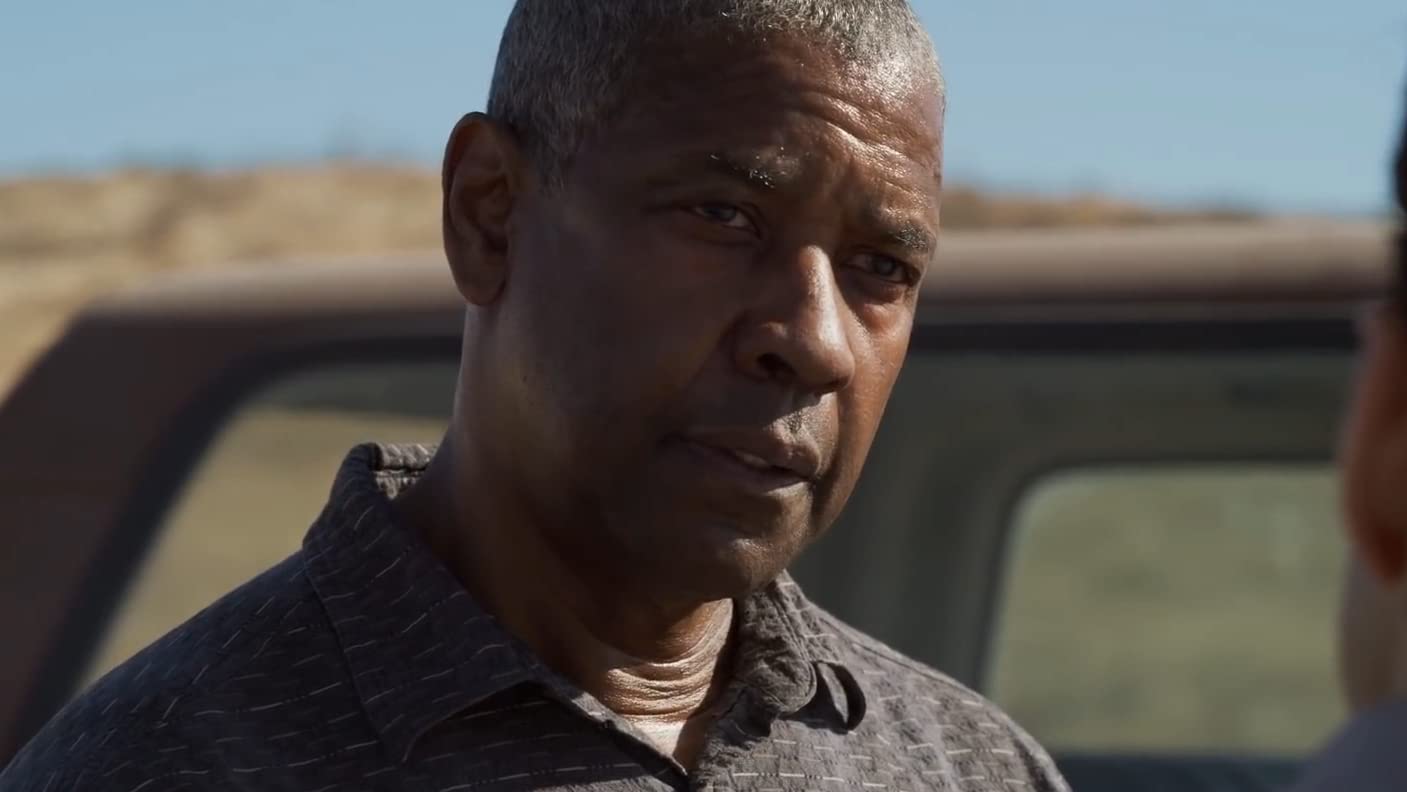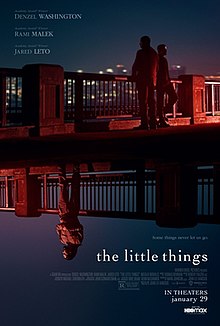
 The Little Things (2021) opens on a stressful note. A young girl is driving alone on the highway only to become aware of a stalker from whom she narrowly escapes. Sometime later, deputy sheriff Joe “Deke” Deacon (Denzel Washington, The Equalizer, The Book of Eli) goes to the L.A. Sheriff’s Department in Los Angeles, Kern County, to obtain evidence related to a recent murder.
The Little Things (2021) opens on a stressful note. A young girl is driving alone on the highway only to become aware of a stalker from whom she narrowly escapes. Sometime later, deputy sheriff Joe “Deke” Deacon (Denzel Washington, The Equalizer, The Book of Eli) goes to the L.A. Sheriff’s Department in Los Angeles, Kern County, to obtain evidence related to a recent murder.
Having stepped down from his role as detective years ago, Deke’s presence attracts the attention of both his former colleagues and newly-appointed lead detective Jimmy Baxter (Rami Malek, Mr. Robot, Bohemian Rhapsody). Upon invitation, Deke accompanies Baxter to a crime scene involving the murder of a young girl and notices similarities between the case and the one that led to his retirement years prior. After the body of another girl is discovered in a river and a young woman goes missing while out on a jog, Deke decides to help with the investigation and looks into a local repair shop employee named Albert Sparma (Jared Leto, Suicide Squad, Dallas Buyer’s Club) as a potential suspect. While there is no definite proof linking Sparma to the murders, Deke and Baxter hold out hope that Sparma is the killer, and their commitment to bringing him to justice leads to the undoing of all three characters.
The film is like a typical detective show/murder mystery in a lot of ways. Deke and Baxter engage in a lot of fast and clever dialogue in their discussions about crime versus justice and the life of a detective. Like other characters played by Denzel Washington, Deke is a character whose devotion and skills are only made possible by his murky past and tortured conscience. Jared Leto’s portrayal of Albert Sparma has all the subtlety of a Disney villain, from his awkward and uncanny walk to taunting lines such as, “You know, you and I are a lot alike. In another lifetime, we could be friends,” and “I’ve seen a picture of your family. You should have stayed out of the public eye, Jimmy.” These character tropes made me roll my eyes a bit, but the film made up for itself in other ways.
What made the film most interesting to me is that the identity of the killer, or even the mission to find the killer, is not the important part. Rather, the ways in which Deke and Baxter choose to come to terms with their own motives and the consequences of their actions is the focus of the story. At one point in the film, Deke asks Baxter why he wants to catch the killer, to which Baxter replies that it’s for the dead girls. Deke then says, “Well, I want to nail him too. The difference is I’m doing it for me.” What I originally thought was a throwaway line had deeper meaning by the film’s dark ending when it is revealed that Deke’s dedication to finding the killer is driven by a guilt-ridden conscience over a crime he committed years ago. It’s a destiny that he passes on to Baxter by helping him conceal the unjust death of Sparma.
When discussing the murdered girls near the beginning of the film, Deke says there are “no angels.” A phrase that at first seems like Deke’s grim realism about the life of a detective makes more sense as an admission that nothing good he does in the present atones for the crimes he has spent years trying to forget. Deke’s saying about angels might come to the viewer’s mind during a scene in which Deke contemplates a painting of an angel comforting Christ in the Garden of Gethsemane. After seeing the painting, Deke tries to sleep, only to be disturbed the faces of the murdered girls around his bed. Rather than comforting Deke, however, the faces confront him with accusatory stares.
This is a movie about taking moral short cuts and pursuing a righteous course of action out of guilt rather than otherwise pure motives. It’s a slow burn that leads to a tragic and unredemptive ending. However, not all good movies are comfortable to watch, and The Little Things is one of the few good ones I’ve seen for awhile.



![[REVIEW] MARVEL COLLECTOR CORPS X-MEN 20TH ANNIVERSARY](https://geekd-out.com/wp-content/uploads/2020/08/IMG_4216-150x150.jpg)
